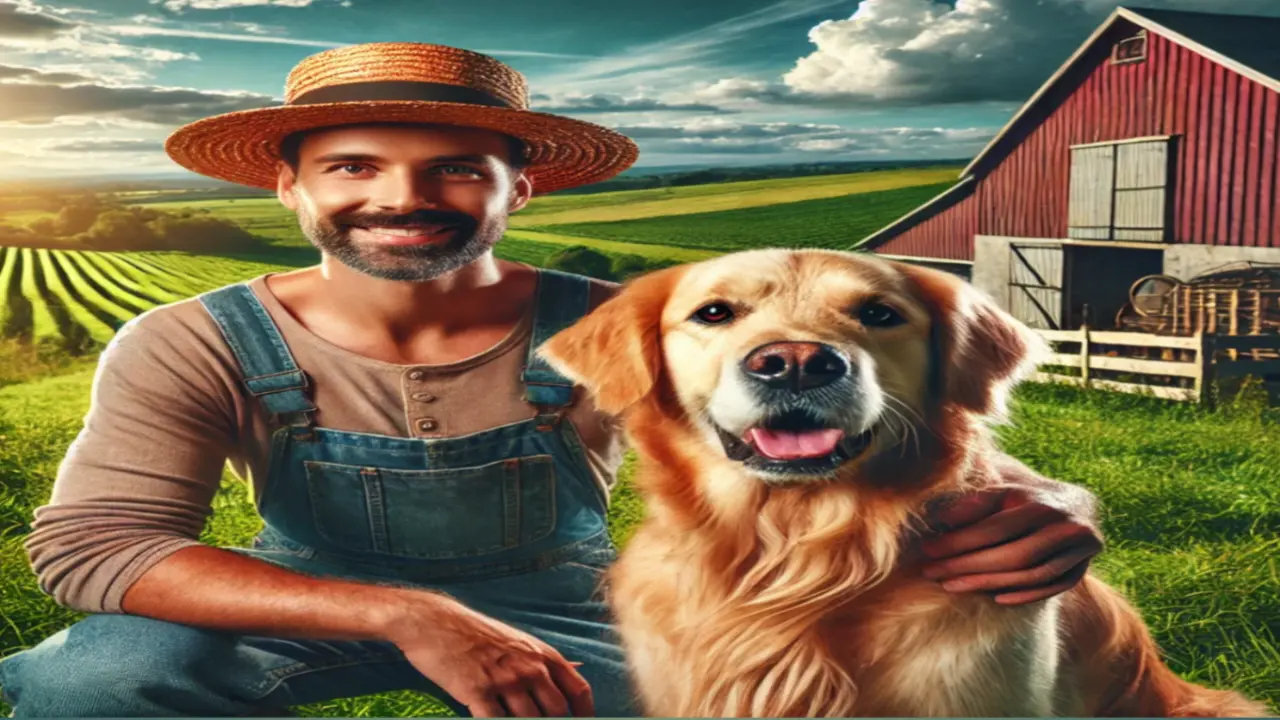A farmer’s dog is no domestic pet but a loyal worker, protector, and trusted companion. Dogs have been a part of farm life for centuries, from herding sheep and guarding livestock to providing companionship on long days in the fields. A good dog on your homestead, small or large scale, can change the game.
In this blog post, we’ll examine the different roles a farmer’s dog might play, the best breeds suited for life on the farm, how to train your dog, and how to take care of your tireless canine helper.
The Role of a Farmer’s Dog on the Homestead
A farmer’s dog isn’t a pet. It’s a working member of the farm. These dogs have several roles to help the farm run smoothly. Here are a few important roles they fill:
1. Herding and controlling cattle
A farm dog’s most typical role is to herd livestock. Breeds such as Border Collies, Australian Shepherds, and Cattle Dogs are intelligent and agile animals that excel at gathering and moving sheep, cattle, or goats. An experienced herder will help save a farmer hours’ worth of work by leading livestock efficiently and covering any that fall out of line.
2. Guarding the Farm
3. Pest Control
4. Security for the Homestead
In addition to guarding livestock, a farmer’s dog protects the homestead, too. Farmers benefit from their acute senses, which, unlike any human, detect intruders long before humans would, allowing for peace of mind, especially in rural areas, where a majority of security systems are in towns.
5. Emotional Support and Companionship For Seniors
Farming is a difficult and sometimes isolating profession. A farmer’s dog brings companionship, loyalty, and an unbreakable bond that alleviates the stress of day-to-day life. With riding with their owner on a tractor or sleeping on the rug at the fireplace after a long day, these dogs add comfort and happiness to their families.
Guide to Choosing a Farmer’s Dog: Best Breeds
The right breed to fit your dog to your farm’s unique needs is paramount! In other words, here are some of the best farm life breeds:
Herding Dogs
- Border Collie – Very clever and high-energy, suited to sheep-cattle herding.
- Australian Cattle Dog – Rugged, hard-working, ideal for herding livestock in rough terrain.
- Australian Shepherd – A hard-working dog with many instincts and high energy.
Livestock Guardian Dogs
- Great Pyrenees – Kind giants, excellent at defending livestock from predators.
- Anatolian Shepherd – Natural-born guardians archetype, they are fearless and autonomous.
- Maremma sheepdog – a highly loyal and hard-working dog that is often used to guard sheep and goats.
Hunting and Pest Control Dogs
- Jack Russell Terrier – Little but strong; perfect for managing rodents.
- Rat Terrier – speedy and efficient hunters for pest control.
- Dachshund – Bred to hunt badgers originally, can also be used for pest control.
All-Purpose Farm Dogs
- Labrador Retriever – Friendly and intelligent, wonderful for companionship and hunting.
- German Shepherd – Very trainable and protective; quite useful for guarding and herding.
- Blue Heeler (Australian Cattle Dog) – Ever-loyal, hardworking, you have a great farm dog.
Training Your Farmer’s Dog
1. Start Training Early
2. Use Positive Reinforcement
Farm dogs that are trained using reward-based methods tend to do better. Bestowing praise, special treats, and even snuggles can encourage them to repeat good behavior.
3. Teach Basic Commands
Sit, stay, come, leave it, and heel are basic commands for managing your dog on the farm.
4. Train for Specific Farm Tasks
- Training Herding dogs to answer a whistle or a voice will help them.
- You can train Guardian dogs to know boundaries and what constitutes a threat.
- Hunting dogs can also be used to chase pests, however, they should not harm farm animals.
5. Socialization is Key
If you’ve ever heard the phrase, “a well-socialized dog,” exposing your dog to a variety of animals, people, and farm environments will help steer it clear of fear or aggression.
Take Care of Your Hardworking Farm Dog
Farm dogs also work very hard and will need appropriate care to keep them healthy and happy.
1. Nutrition and Diet
For working dogs, a high-protein diet is vital. Seek out food designed for working dogs, or add raw meat and vegetables as supplements.
2. Regular Exercise
While farm dogs are inherently active, structured exercise like running or agility training helps keep them fit and healthy.
3. Veterinary Care
Farm dogs are also already adult dogs, so regular check-ups, vaccinations, and parasite prevention (fleas, ticks, and worms) are very important.
4. Grooming and Hygiene
- Long-haired breeds should be regularly brushed to avoid mats.
- Muddy days in the field might require baths for working dogs.
- Inspect paws for cuts, thorns, or wounds.
5. A Comfortable Resting Space
Even the most industrious pup requires a cozy spot to kick back. We have a nice warm bed all to ourselves and shelter from the wind and rain!
Final Thoughts
A farmer’s dog isn’t just a pet: It’s an essential collaborator in the life of the farm. Whether it be herding, guarding, hunting pests, or providing companionship, these steadfast dogs have a vital role to play on the homestead. The right breed with proper training and good care will ensure your dog is happy, healthy, and willing to help you every day.
If you are interested in adding a farmer’s dog to your homestead, do your research, find the right breed for your homestead needs, and invest in proper training. In return, you’ll have a loyal companion who will accompany you through all the seasons of farm life.
Do you have a farmer’s dog? Tell us about your experiences in the comments!
